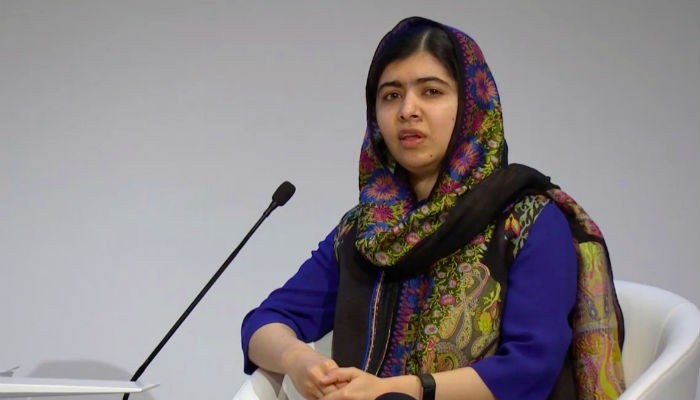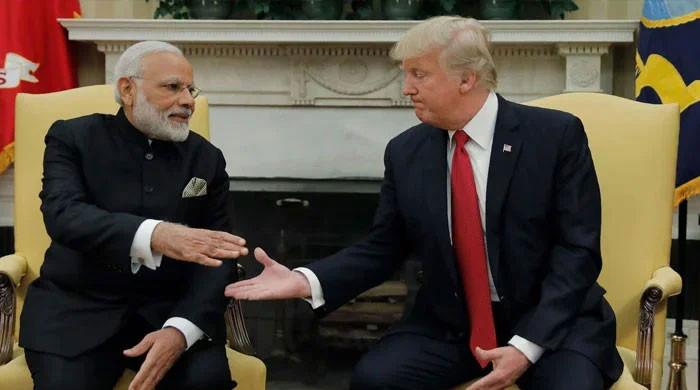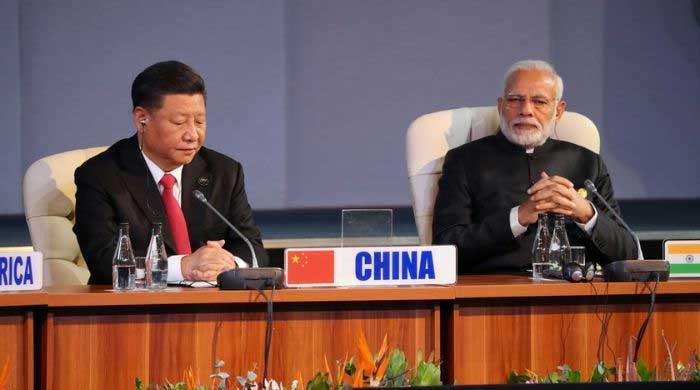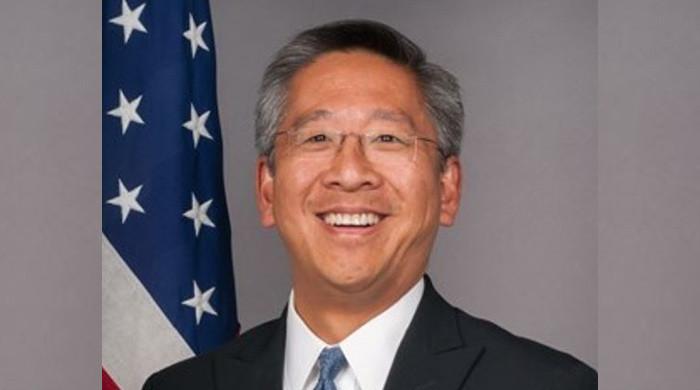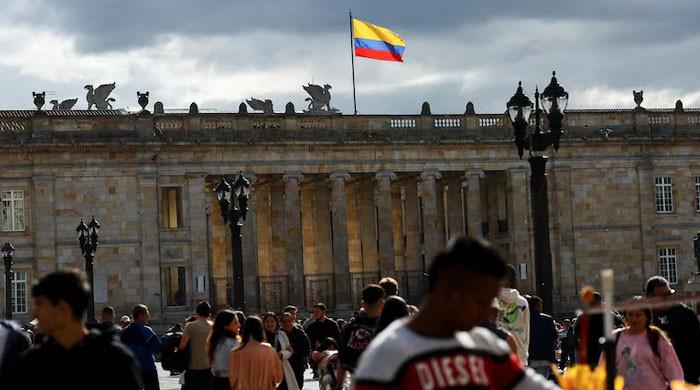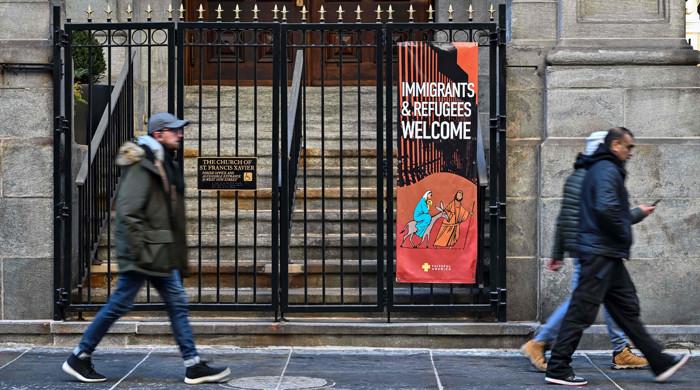From Davos: Justin Trudeau and Malala Yousafzai on Education and Empowerment
The panelists are discussing 'creating a shared future through education and empowerment'
January 25, 2018
DAVOS: Canadian Prime Minister Justin Trudeau and Nobel Peace Prize winner Malala Yousafzai participated in a panel discussion on creating a shared future through education and empowerment.
The discussion focused on the value of diversity and equal opportunities for all, ensuring equal access to education for both girls and boys and developing skills for the future of work.
In her opening remarks, Malala Yousafzai identifying the main roadblocks towards access to education said that the barriers that girls are facing vary from country to country and region to region.
She pointed out that in some parts girls can't have an education because of poverty, lack of transport, because there is no school near their community, in other parts it is because of social issues including child marriages or not being allowed to go out.
Malala stressed that the need was to make sure that there is balance in the number of schools for girls, that the hurdles are removed, and all the issues need to be addressed.
A strong believer that it is through education that women would become empowered, Malala stressed that it was not the job of just one person, rather things needed to be done on multi-levels. On the part of the government level, business level or NGO level and on the activists level.
She explained that through the Malala Foundation she was reaching out to advocates in Pakistan, Latin America, Nigeria, India and around the world, empowering them so they help strengthen the system through teacher training, e-learning and also focusing on empowering girls because she believes they are the future, so that they can speak out and try to speak about the issues they are facing.
However, she also pointed out that it was on the governments, presidents and prime ministers to play a big role to ensure that women can have access to quality education and opportunities.
Malala said she was looking forward to the support from Canada and the steps that the Canadian government would be taking.
On the role of the business sector, Yousafzai said, they have to invest in education and empowerment of education, terming it an investment that will have very high returns.
When you invest in a girl you are contributing to her individually, she will have a future but you are impacting the community, the country the nation. It will help the economic growth, it helps reduce poverty, it helps control climate change, it helps address child labour, child trafficking and a host of other issues, she added.
"The benefits and advantages are countless," she stressed before adding, "We have to take a step and that step is an investment in education."
Canadian Prime Minister Justin Trudeau shared that in two weeks Canada would be announcing doubling its annual contribution to $180 million in the world partnership for education.
In her closing remarks, Malala Yousafzai said that each and every action that we take matters when talking about women's empowerment.
"We have to change the way we act, the way we speak, the way we address the issue," said Yousafzai.
Yousafzai said that her father is a feminist and a strong believer in women's rights and he didn't just say it he acted on it.
She recalled that it was her father who changed how their family tree was seen by adding her name to it when earlier no woman's name was mentioned in the family tree.
She concluded that no matter which sector or which industry women should be given opportunities because it would result in an improvement of economic standing and living standards.
Appreciating the way Malala summed it up, Trudeau said he couldn't say it better than that, adding that men have to to have the courage to be feminists and the integrity to be allies.
